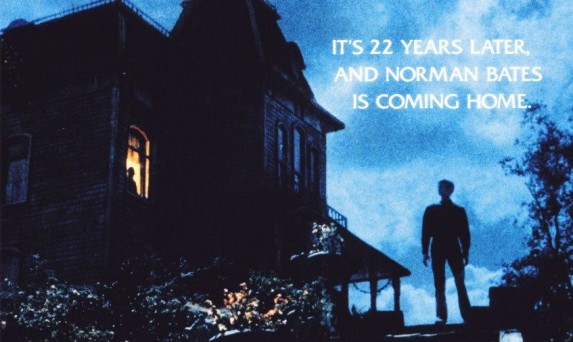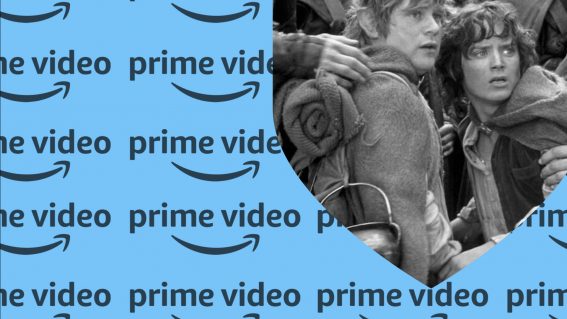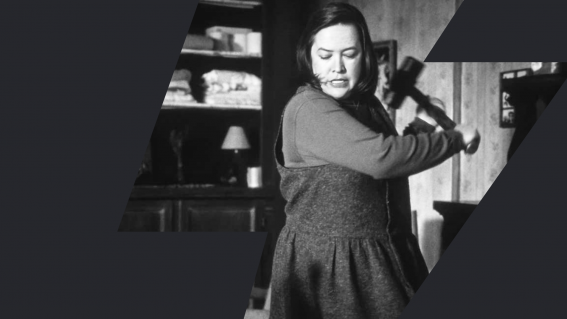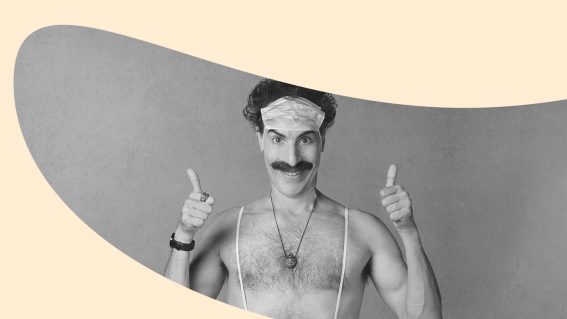Sequels Better Than Their Reps Might Suggest
It’s easy to rag on sequels. They often suck. But just like a good horror film, when one comes along that’s actually good, that rarity can make it all the more exciting. In this blog entry I’m gonna talk about some sequels that are too readily dismissed, unfairly maligned, or are simply better than our […]

It’s easy to rag on sequels. They often suck. But just like a good horror film, when one comes along that’s actually good, that rarity can make it all the more exciting. In this blog entry I’m gonna talk about some sequels that are too readily dismissed, unfairly maligned, or are simply better than our all-too-ready-to-be-cynical-about-sequels minds may suggest.
Alfred Hitchcock’s 1960 classic Psycho is one of the most famous movies of all time, and rightly so – it more or less invented the modern horror genre, and stands up as engaging exercise in twisty thrills and Freudian gru.
It’s the only Hitchcock film to be sequelized, but when the follow-up came out in 1983, it was during the height of the horror sequel-frenzy. It was critically and financially well-received at the time, but often when I recommend it, I get quizzical stares in response. Looking back, it seems too easy to lump it in with the exploitative likes of the Friday the 13th and Halloween sequels.
As someone who followed their pubescent Alfred Hitchcock obssesion by delving into the Hitchcock-emulating work of Brian De Palma (Obsession; Dressed To Kill; Body Double et al), I was shocked when I discovered that De Palma wasn’t hired to direct the sequel. My charmingly guileless fourteen-year-old mind simply did not see the logic in not hiring him.
But still, my curiososity lead me to rent Psycho II, and I learnt a lesson in not pre-judging a movie. It is seriously good, and a more-than-worthy follow-up to Hitchcock’s masterpiece. It makes creative use of the 22 year gap between the two films, beginning with Anthony Perkins’ Norman Bates being (believably) released from the mental asylum he was confined to at the end of the first film.
Vera Miles returns as Lila, the sister of original victim Marion Bates (Janet Leigh), and Meg Tilly (The Big Chill) plays a large supporting role as her daughter. The splendidly sleazy Denniz Franz (best known for NYPD Blue, but much more enjoyably low-brow in roles like this one and De Palma’s Blow Out, and whom I’m confident Hitchcock would’ve cast had they been working in the same era) is now running the Bates Motel as a low-rent hook-up hotel. The plot manages some real surprises, and does an effective job of making Norman sympathetic.
Despite my wanting De Palma to direct the film, it turns out the man chosen was almost equally appropriate – Australian director Richard Franklin, who had previously made the very Hitchcockian thriller Roadgames, which could be accurately described as “Rear Window on the road”. While studying film at the University of Southern California in the late 1960s, Franklin invited Hitchock (who was yet to fully benefit from the wide artistic reverence his name now enjoys) to the school to give a talk on his 1948 film Rope, and subsequently begun a friendship with the director.
Franklin’s reverence for the master comes through in Psycho II, which remains both a marvellous thriller in its own right, and a great example of how to execute a “decades later” sequel (unlike say, Wall Street: Money Never Sleeps). The camera work is consistently interesting, and the plot is far from a simple rehash of the first one. It’s strangely satisfying to see the black and white world Hitchcock created in Psycho brought into the colour era.
Anthony Perkins himself directed the less-interesting Psycho III, and E.T. Star Henry Thomas played young Norman alongside Perkins in 1990’s made-for-cable Psycho IV. Both are worth-watching as curiosities, but neither holds a candle to the masterful Psycho II.
When I was discovering film as a young teenager in the early ’90s, I read Mick Martin and Marsha Porter’s Video Movie Guide cover to cover. This annually published review book (which seemed to go the way of the dodo in 2007) was the principle alternative to Leonard Maltin’s film guides and contained exhaustive cross-referencing sections at the back featuring both actors and directors.
As you could imagine, this was an invaluble recource for a film nut in the pre-IMDb era. Plus Mick and Marsha seemed to have a more open-minded approach to popcorn cinema than the Golden Age-worshipping Maltin (not to mention the insufferably stuffy Halliwell). Despite their more populist approach, I always remember how they dismissed Stephen Hopkin’s 1990 follow-up to Predator with a throwaway one-line review and a rarely administered “Turkey” rating. It was unfortunately typical of how most reviewers saw Predator 2, and I’m constantly shocked (shocked!) by how many fellow film fans are willing to dismiss the film. But seriously, it is great.
I admit to being disappointed at the time that Arnie wasn’t involved (thanks to the subsequently revised “no sequels” policy he adopted after Conan The Destroyer), but the film holds up awesomely well.
It’s set in a very Verhoeven-esque near future LA, and features Danny Glover as a head of a squad of cops comprised of rad ’80s and ’90s character actors – Ruben Blades (so awesome in Colour of Night), Maria Conchita Alonso (The Running Man) and the great Bill Paxton. Gary Busey shows up later (in the role apparently earmarked for Arnie, and no-doubt scaled back when he decline to particpate) as a G-man looking for Preddy.
The action is brutal and quick, and Hopkins stages some fantastic set-pieces – the massive climax in particular rules. As sequel, the story benefits from the new urban setting. It’s the only Predator or Alien film to go for an urban environment, which works remarkably well, despite maybe seeming sketchy on paper. It’s also one of two 1990 films featuring ruthless Jamaican gangsters (hello Marked For Death!), and there’s something wonderfully symmetrical about placing them next to the dreadlocked hunter from beyond the stars.
Predator 2 also famously introduced the notion that the Predator and the Alien inhabit the same cinematic universe when he see an alien skull in the Predator’s trophy room inside his spacecraft. Plus, Danny Glover calls the Predator Pussy-Face! What’s not to love?!
Predator 2 looks even better when compared to subsequent films featuring Pussy-Face, which include the blah-Alien Vs Predator, the awful Aliens Vs. Predator: Requiem, and the disappointing Predators. Predator 2 was the last film to maintain some dread-laden mystique for the dreaklocked killer, and is more than worthy of re-assessment.
Tom Cruise gets a lot of flak, and I’ve gone on record here in the past as being somewhat of a Cruise apologist. Mission: Impossible II (2000) got a lot of people riled up, even in the pre-couch jump era. But I seriously love this movie. Maybe it’s cause I’m a sucker for slow-mo action, but there is so much to enjoy here.
Granted, the love-story parts are slightly pants, but the the action set-pieces rule. I consider M: I II to be action auteur John Woo’s purest english language film, from the fluttering pigeons in place of doves to the personal stakes injected into Ethan Hunt’s mission. Even the endless shots of the Cruiser’s hair fluttering in slow-mo seem appropriate in Woo’s world.
Decent motorcycle action is far too rare in modern action cinema (I loved that Captain America delivered in this regard), and there’s plenty of it here. Also too rare in modern cinema: action leads executing Street Fighter II kung-fu moves, whch Cruise does with aplomb.
The Sydney setting gives it an antipodean point of interest, and Dougray Scott is enjoyably petulant as the villain. I wonder how much time he spends dwelling on the fact that M: I II’s overrunning schedule forced him to pull out of playing Wolverine in the original X-Men film, paving the way for Hugh Jackman’s star-making turn. Richard Roxburgh (who would go on to star in Moulin Rouge and Van Helsing) is also much fun as Scott’s South African henchman.
So yeah, I love Mission: Impossible II. I’ll admit it probably takes itself too seriously, but that’s part of the sun-drenched, soap-opera-with-action charm. Plus, it’s an unofficial remake of Alfred Hitchcock’s 1946 classic Notorious, so there’s that.
Gremlins 2 isn’t exactly a disliked film, but I strongly believe that not enough people have seen it. It almost functions as a pisstake of the first film (I love the scene where minor characters deconstruct the arbitrary “rules” to prevent turning Mogwai’s into Gremlins), and it embodies the Warner Bros. cartoon-influenced sensibilities of director Joe Dante arguably more than any of his other movies. The film was not a huge financial success, and the franchise died, but surely the time is right for Dante to revisit this world. There has to be more justification for a Gremlins 3 than a film based on Battleship, right?
1988’s Big Top Pee-Wee may lack the searing originality and superlative laugh-rate of the 1985 film that introduced the character to a cinematic audience, but it’s a heck of a lot more singular than most comedies. And it’s worth revisiting if only to get warmed up for the oft-rumoured Judd Apatow-produced third Pee-Wee movie.
I’ve spent a lot of my time discussing Alien 3‘s failings as a sequel, but as a standalone film, it’s pretty impressive. It’s hard to get past the fact that it shits on everything Aliens stood for, but as a science fiction thriller, there are plenty of cool ideas. And it’s also waaaay better than Alien: Ressurection. Man, I cannot wait for Prometheus.
There was an online movement some years ago, in the build-up to the release of Superman Returns, that focused on how Superman director Richard Donner didn’t get to finish direct Superman II, and how it was “ruined” by Help! and The Three Musketeers helmer Richard Lester, who supposedly undermined Donner’s by making it too jokey. The furore seemed to die down when “The Richard Donner Cut” edition of Superman II was released on DVD, but I’d just like to restate for the record that I love Richard Lester’s Superman II, even the jokes!
I guess they only sort of count as sequels, but the two Timothy Dalton Bond films (1987’s The Living Daylights and 1989’s Licence To Kill) are waaaaay better than their reps suggest. It’s boringly fashionable to dimiss Dalton’s run as Bond, but he brought a lot to the character that Daniel Craig is now getting credit for – the steely, serious edge; the slightly diminished libido; the focused determination of a genuine killer. Plus his two films are fantastic late ’80s action movies, and shit all over the Brosnan entries. Remington Steele never looked convincing with a gun.
Are there any sequels which you think don’t get a fair shake? Or do you think some of the ones I’ve mentioned here deserve their sucky reps? Comment below yeah!


























